Although solving these problems is very specific to the region and the plant, there are some common things that might help you address these issues better.
Just like humans, plants can face their fair share of health issues. The key to a better garden is not just in planting the right seeds but also in keeping an eye on common plant problems and knowing how to address them naturally before things worsen. In this guide, we will discuss some of the most prevalent plant problems home gardeners in India encounter, their symptoms, causes, and natural solutions to help your garden flourish.
1. Powdery Mildew

Symptoms: Powdery mildew often appears as a white, powdery substance on the leaves and stems of plants. Affected leaves may become discoloured or develop small, yellow spots.
Causes: Powdery mildew thrives in dry conditions with high humidity. Poor air circulation, overcrowding, and excessive nitrogen fertilization can also contribute to its development.
Natural Solution: To combat powdery mildew, try a homemade remedy like a mixture of one part milk to nine parts water and spray it on your plants. Neem oil, a natural fungicide, can also be effective. Ensure proper spacing between plants for better air circulation, and avoid over-fertilizing with nitrogen-rich compounds.
2. Blight

Symptoms: Blight typically appears as dark, irregularly shaped spots on leaves, stems, and fruit. These spots can quickly enlarge and lead to the withering and dying of plant parts.
Causes: Blight is often caused by bacteria or fungi, and it spreads rapidly in humid conditions. Overhead watering can also contribute to its development.
Natural Solution: Use a mixture of copper sulfate and lime as a natural fungicide. Ensure good air circulation and consider pruning affected plant parts. Water your plants at the base to prevent moisture on the leaves.
3. Rust

Symptoms: Rust presents as reddish-brown or orange powdery spots on the undersides of leaves and sometimes on stems. It can cause leaves to wither and drop prematurely.
Causes: Rust is a fungal disease that thrives in damp and humid conditions. Poorly drained soil and overcrowding can create the ideal environment for rust to develop.
Natural Solution: Apply a mixture of neem oil and water to affected areas. Remove and dispose of infected leaves and maintain proper spacing between plants. Ensure your garden has good drainage to prevent waterlogged soil.
4. Downy Mildew
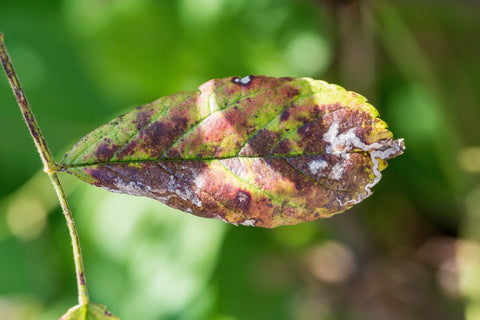
Symptoms: Downy mildew manifests as yellow or pale green spots on the upper sides of leaves, often accompanied by white, fuzzy growth on the undersides of leaves.
Causes: This disease is caused by fungi and thrives in cool, humid conditions. Overhead watering and overcrowding can promote its growth.
Natural Solution: Use a mixture of baking soda and water (1 tablespoon baking soda to 1 gallon of water) to control downy mildew. Ensure good air circulation and avoid wetting the leaves during watering.
5. Black Spot

Symptoms: Black spots with fringed edges develop on the upper sides of leaves, often accompanied by yellowing and early leaf drop.
Causes: The black spot is caused by a fungus and is more common in regions with high humidity. Overhead watering and wet foliage contribute to its spread.
Natural Solution: Make a solution of baking soda and water (1 tablespoon baking soda to 1 gallon of water) or a mixture of milk and water (1 part milk to 9 parts water) and spray it on the affected leaves. Prune and dispose of infected foliage, and avoid overhead watering.
6. Mosaic Virus

Symptoms: Mosaic virus causes mottled, distorted, and discoloured leaves with a mosaic-like pattern. It can stunt plant growth and reduce yield.
Causes: This virus is typically spread by pests like aphids and whiteflies, as well as through contaminated tools. Infected seeds can also transmit the virus.
Natural Solution: There is no cure for the mosaic virus, so prevention is key. Use insect-repelling plants like marigolds and maintain good garden hygiene. Dispose of infected plants and avoid planting new crops in the same location.
7. Leaf Curling

Symptoms: Leaf curling can manifest as leaves folding upward or downward, and it can lead to distorted growth and reduced photosynthesis.
Causes: Various factors can cause leaf curling, including pests, diseases, nutrient deficiencies, or even environmental stress such as extreme temperatures.
Natural Solution: Identify the underlying cause of leaf curling and address it accordingly. Prune affected leaves, improve soil nutrition, and provide adequate water and sunlight.
8. Brown and Yellow Leaf Edges

Symptoms: Brown or yellowing edges on leaves can indicate a range of issues, including nutrient deficiencies, overwatering, underwatering, or poor soil drainage.
Causes: These symptoms can result from various factors, so it's essential to diagnose the specific problem.
Natural Solution: Identify the root cause of browning or yellowing leaf edges. Adjust your watering schedule, improve soil quality with organic compost, and consider foliar feeding with a balanced organic fertilizer.
9. Verticillium Wilt

Symptoms: Verticillium wilt causes wilting and yellowing of leaves, often on one side of the plant. Over time, entire branches or plants may die.
Causes: This disease is caused by soil-borne fungi and can persist in the soil for years. It's more common in cool, wet conditions.
Natural Solution: There is no direct treatment for Verticillium wilt once a plant is infected. Focus on prevention by choosing resistant plant varieties, practising crop rotation, and maintaining proper soil health.
In your journey as a home gardener, encountering plant problems is almost inevitable. However, armed with knowledge about common issues, their symptoms, causes, and natural solutions, you can better care for your garden without resorting to chemical treatments. Remember, a thriving garden is not just about what you grow but also how you nurture it naturally. With a little care and attention, you can ensure your urban kitchen garden flourishes and provides you with a bountiful harvest of fresh, organic produce year-round. Happy gardening!


 Sign In
Sign In





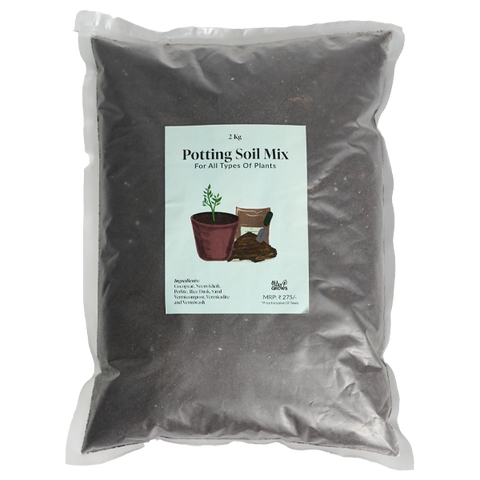
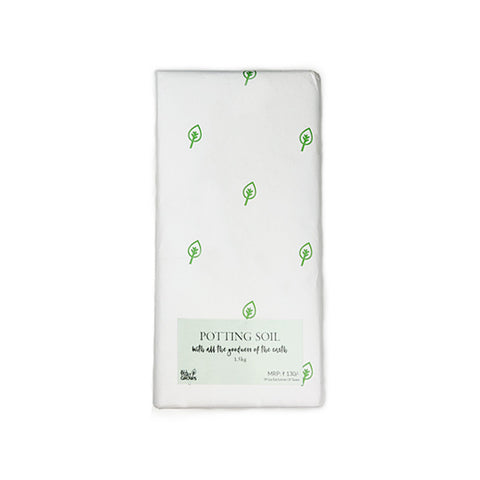
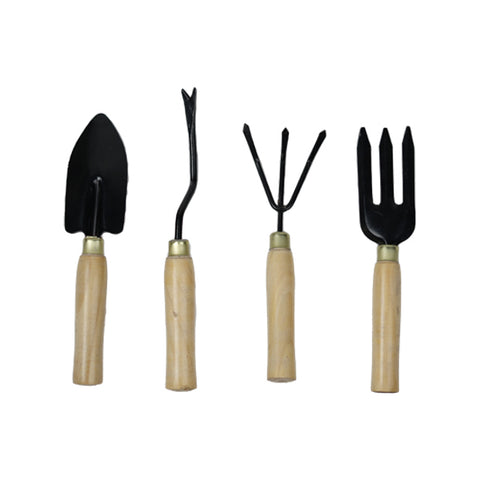
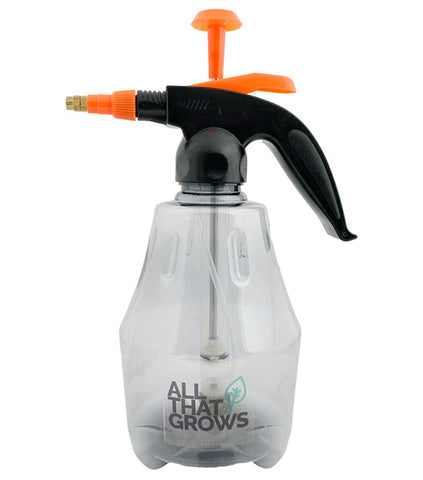







Let us know your feedback
* Comments must be approved before being displayed.